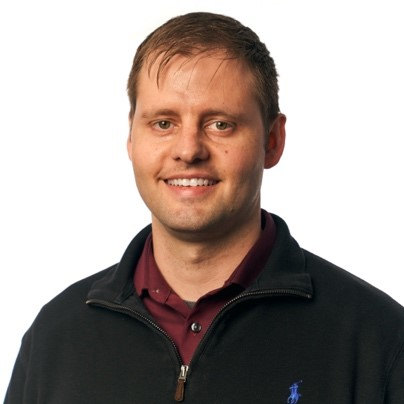Department of Chemistry and Biochemistry
Faculty and Staff Directory
Nicholas Truex
| Title: | Assistant Professor / Biochemistry |
| McCausland College of Arts and Sciences | |
| Email: | ntruex@sc.edu |
| Phone: | 803-576-5806 |
| Fax: | 803-777-9521 |
| Office: | GSRC 410 Lab - GSRC 411, 412, & 420 |
| Resources: | CV All Publications (via ORCID) |

Education
B.S., 2011, Purdue University
Ph.D., 2017, University of California, Irvine
Honors and Awards
NIH Postdoctoral Fellowship, 2020–2022; MIT Ludwig Center Postdoctoral Fellowship, 2018; UC Regents’ Dissertation Fellowship, 2017; Michael Zach Award for Research and Teaching, 2017; Allergan Graduate Fellowship, 2016.
Research Interests
A new phase of the immunotherapy revolution has begun. The prior phase revealed a capacity to transform human health with immunotherapy treatments for infectious diseases, autoimmunity, and cancer. The current phase is advancing their potential through improved understanding and control of innate and adaptive immune pathways.
The Truex Lab is devoted to engineering new molecular immunotherapies that enhance the control of immune pathways and, in turn, advance human health. We will achieve this goal through developing chemical tools that we envision will engage immune pathways and direct their function, including immune activation, suppression, localization, or timing. Our projects aim to overcome core limitations of existing immunotherapies and to improve outcomes for cancer and pathogenic diseases, using molecular vaccines, immune-signaling proteins, and adoptive cell-transfer (ACT) therapies. Over time, we will enhance these technologies through the following projects:
(1) Regulating Immune Responses with Engineered Transcription Factors.
(2) Decoding Signals from Covalent Modifications of Immune Proteins.
(3) Regulating Vaccine Kinetics with Supramolecular Peptide Assemblies.
Students and postdocs will learn to design and prepare peptides, proteins, and small molecules using chemical synthesis and recombinant expression techniques, and to characterize them using structural, computational, and biophysical analyses. They will also learn to investigate biological properties with modern immune assays and technologies. These efforts will cultivate an interdisciplinary research environment that provides diverse, yet in-depth, training in molecular biology & protein engineering, flow peptide synthesis & bioconjugation, mass spectrometry, NMR spectroscopy, biophysical and biological analyses, and animal models.
Selected Publications
Rojas, A.J.; Wolfe, J.M.; Dhanjee, H.H.; Buslov,I.; Truex, N.L., Liu, R.Y.; Massefski, W.W.; Pentelute, B.L.*; Buchwald, S.L.* Palladium−Peptide Oxidative Addition Complexes for Bioconjugation. Chem. Sci. 2022. DOI: 10.1039/D2SC04074C.
Gazvoda, M.; Dhanjee, H.H.; Rodriguez, J.; Brown, J.S.; Farquhar, C.F.; Truex, N.L.; Loas, A.; Buchwald, S.L.*; Pentelute, B.L.* Palladium-Mediated Incorporation of Carborane into Small Molecules, Peptides, and Proteins. J. Am. Chem. Soc., 2022, 144, 7852–7860. DOI: 10.1021/jacs.2c01932.
Lu, Z.; Truex, N.L.; Melo, M.B.; Cheng, Y.; Li, N.; Irvine, D.J.; Pentelute, B.L.* IgG-Engineered Protective Antigen for Cytosolic Delivery of Proteins into Cancer Cells. ACS Cent. Sci. 2021, 7, 365–378. DOI: 10.1021/acscentsci.0c01670.
Loftis, A.R.; Santos, M.S.; Truex, N.L.; Biancucci, M.; Satchell, K.J.F.; Pentelute, B.L.* Anthrax Protective Antigen Retargeted with Single-Chain Variable Fragments Delivers Enzymes to Pancreatic Cancer Cells. ChemBioChem. 2020, 21, 2772–2776. DOI: 10.1002/cbic.202000201.
Lu, Z.Y.; Paolella, B.R.; Truex, N.L.†; Loftis, A.R.; Liao, X.L.; Rabideau, A.E.; Brown, M.; Busanovich, J.; Beroukhim, R.*; Pentelute, B.L.* Targeting Cancer Gene Dependencies with Anthrax-Mediated Delivery of Peptide Nucleic Acids. ACS Chem. Biol. 2020, 15, 1358–1369. DOI: 10.1021/acschembio.9b01027.
Jack, S.; Madhivanan, K.; Ramadesikan, S.; Subramanian, S.; Edwards, D.F.; Elzey, B.D.; Dhawan, D.; McCluskey, A.; Kischuk, E.M.; Loftis, A.R.; Truex, N.L.; Santos, M.; Lu, M.; Rabideau, A.; Pentelute, B.; Collier, J.; Kaimakliotis, H.; Koch, M.; Ratliff, T.L.; Knapp, D.W.; Aguilar, R.C.* A Novel, Safe, Fast and Efficient Treatment for Her2-Positive and Negative Bladder Cancer Utilizing an EGF-Anthrax Toxin Chimera. Int. J. Cancer. 2020, 146, 449–460. DOI: 10.1002/ijc.32719.
Truex, N.L.; Holden, R.L.; Wang, B.Y.; Chen, P.G.; Hanna, S.; Hu, Z.T.; Shetty, K.; Olive, O.; Neuberg, D.; Hacohen, N.; Keskin, D.B.; Ott, P.A.; Wu, C.J.*; Pentelute, B.L.* Automated Flow Synthesis of Tumor Neoantigen Peptides for Personalized Immunotherapy. Sci. Rep. 2020, 10, 723. DOI: 10.1038/s41598-019-56943-5.
Samdin, T.D.; Wierzbicki, M.; Kreutzer, A.G.; Howitz, W.J.; Valenzuela, M.; Smith, A.; Sahrai, V.; Truex, N.L.; Klun, M.; Nowick, J.S.* Effects of N-Terminal Residues on the Assembly of Constrained b-Hairpin Peptides Derived from Ab. J. Am. Chem. Soc. 2020, 142, 11593–11601. DOI: 10.1021/jacs.0c05186.
Wang, Y.; Truex, N.L.; Vo, N. D. P.; Nowick, J.S.* Effects of Charge and Hydrophobicity on the Oligomerization of a Peptide Derived from IAPP. Bioorganic Med. Chem. 2018, 26, 1151–1156. DOI: 10.1016/j.bmc.2017.10.001.
Truex, N.L.; Nowick, J.S.* Transmembrane Proteins: Amyloids Hidden in Plain Sight? Biochemistry, 2017, 56, 4735–4736. DOI: 10.1021/acs.biochem.7b00758.
Wang, Y.; Kreutzer, A.G.; Truex, N.L.; Nowick, J.S.* A Tetramer Derived from Islet Amyloid Polypeptide. J. Org. Chem. 2017, 82, 7905–7912. DOI: 10.1021/acs.joc.7b01116
Truex, N.L.; Nowick, J.S.* Coassembly of Peptides Derived from β-Sheet Regions of β-Amyloid. J. Am. Chem. Soc. 2016, 138, 13891–13900. DOI: 10.1021/jacs.6b06001.
Truex, N.L.; Wang, Y.; Nowick, J.S.* Assembly of Peptides Derived from β-Sheet Regions of β-Amyloid. J. Am. Chem. Soc. 2016, 138, 13882–13890. DOI: 10.1021/jacs.6b06000.
Yoo, S.; Kreutzer, A.G.; Truex, N.L.; Nowick, J.S.* Square Channels formed by a peptide derived from transthyretin. Chem. Sci. 2016, 7, 6946–6951. DOI: 10.1039/c6sc01927g.
Xu, S.; Truex, N.L.; Swathi, M.; Negishi, E.-I.* Pd-Catalyzed Cross-Coupling Reactions Exhibiting Catalyst Turnover Numbers Exceeding One Million. Arkivoc 2012, 7, 242. (Dedicated in Honor of Prof. Keith Smith). DOI: 10.3998/ark.5550190.0013.716.